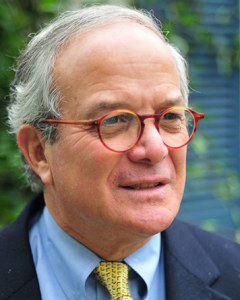By Howard Freedlander
Col’67 and PAR’02
I began an unplanned medical journey more than three months ago. Consequently, I joined a men’s club, to which I had no intention of applying.
On April 30, I received a diagnosis of prostate cancer. By June 16, I underwent robotic-assisted surgery to remove my prostate. I am recovering well and quickly, with no surprises or complications.
On June 24, I learned from my Johns Hopkins Hospital doctor that the surgery successfully extracted all the cancer. I am cancer-free.
I thought long and hard about whether to share this information on a public stage like Frankly Penn. I’m doing so because fortunately I suffered a form of cancer more common than I ever knew among men—and considered mostly curable.
My description so far betrays none of the fear and anxiety I felt—and obsessed about on a daily basis—beginning with the brief phone conversation with an Annapolis urologist, who told me the awful truth. The difficulty continued as I told family members and close friends. Even as I sat two months ago early in the hectic pre-operation area, I worried about life after major surgery.
Cancer no longer was someone else’s problem.
As if studying for final exams 48 years ago at Penn, I read exhaustively about prostate cancer. I spoke with survivors, not only in Talbot County, Maryland, where I live, but throughout the country. I realized the membership of this club was larger than I ever imagined. While comforted to some extent by the survival rate, at least measured anecdotally, I could think of nothing else.
Peace of mind was elusive.
I learned that fighting cancer—or any other life-threatening disease—generates a level of self-absorption and self-centerness that I typically abhor. I talked of little else. I felt distracted, prone to mistakes. The metaphor, “emotional roller coaster,” comes to mind.
And I found out, as do others, I’m sure, the grace and comfort willingly offered by family and friends.
Despite the option of radiation, I chose surgery because it suited me personally; I simply wanted to rid myself of cancer as quickly and effectively as I could. Through a referral from a doctor in my hometown of Easton, MD, I found a physician at the renowned Johns Hopkins Hospital, well-experienced and well-respected in conducting robotic-assisted surgery. He not only was highly skilled, but just as importantly, a person with a nice human touch and incredible responsiveness to my questions and concerns.
I alluded to the inestimable value of support, both professional and friend-and family-based. You expect the medical professionals to respond with expertise and compassion, and that generally happened. You lean on your family, and again I was the beneficiary of tremendous care and concern. My wife Liz was a great nurse and wonderful friend.
Everyone deals differently with personal calamity. I like to do personal research, using both the written and spoken word. And so I spoke with people to whom friends referred me, people whom I did not know, such as an attorney in Chicago and a real estate developer in Washington, DC; they unselfishly spent time explaining their experience with prostate cancer. I spoke with a Penn classmate, whose name I saw as a donor to the Brady Urological Institute at Hopkins. Also, I constantly sought counsel and comfort from an Easton friend who had undergone prostate surgery in 1999 at Hopkins.
So, what have I have done since my wrenching medical odyssey ended?
I have found other subjects of conversation that exclude personal medical problems. I will continue retirement activities that have no connection to the medical system. Life as a patient is grueling.
I have reached out to others, including a friend in Washington State, trying to help him navigate treatment options for prostate cancer. He seems disinclined to take the surgery route.
And, finally, I will remain ever thankful for a dose of good luck, renewal of good health and the ability to continue praying for those who endure life-threatening medical situations far more complex than early-detected prostate cancer.
Life looks brighter now. It’s time to move on. It’s time to laugh again.




